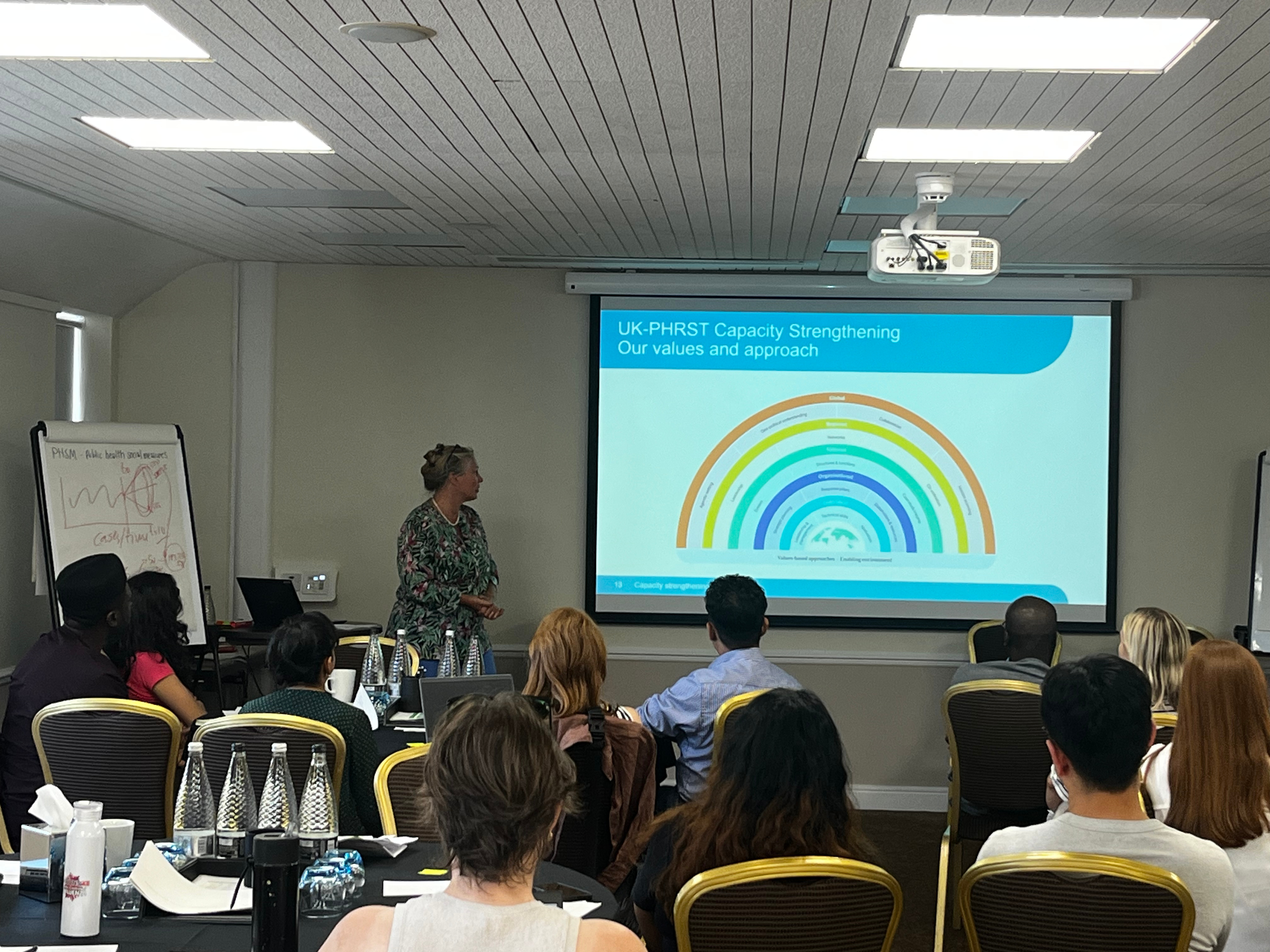
The UK-Public Health Rapid Support Team (UK-PHRST) partners with low- and-middle income countries to support effective response to outbreaks before they develop into global health emergencies.
The team has several deployable experts, including core team members, Field Epidemiology Training Programme (FETP) fellows and a reservist cadre. The team bring expertise in epidemiology, microbiology, infection prevention and control (IPC), social science, risk communication, mental health and psychosocial support.
To prepare our deployees for situations they may face in-country, the UK-PHRST Capacity Strengthening team provides a comprehensive annual deployment training programme based on a peer-learning approach.
The 2025 peer-learning programme
The 2025 training programme capitalised on UK-PHRST and partners' collective deployment experience by taking a peer-learning approach, where new and experienced deployees learned from one another. The training followed a blended learning design consisting of online sessions and a three day in-person event.
Training UK-PHRST staff and partner organisations

Twenty-three participants attended the 2025 training, including UK-PHRST staff, UK-PHRST reservists, Field Epidemiology Training Programme fellows and members of partner organisations including Africa CDC and World Health Organization Regional Office for Africa (AFRO). Partner organisation members were vital to enhancing the learning experience for all as they provided their unique operational and regional perspectives on outbreak response.
Scenario-based learning
The participants took part in a deployment simulation scenario in a country known as Central land. Here, the trainees were faced with the aftermath of a tropical storm and a cholera outbreak impacted by climate-related factors.
Learning was grounded in participants’ lived experiences and enabled them, through reflective discussions and opportunities, to explore new approaches in a supportive environment. Participants also developed skills in areas such as crisis leadership, risk communication, and conflict resolution.
This year’s programme also included new themes such as emergency coordination in complex crises, understanding political dynamics, hierarchies, and decision-making in uncertainty.